
Kód: 04716032
Critical Elections and Congressional Policy Making
Autor David Brady
As early as 1831, Alexis de Tocqueville found the House of Representatives 'remarkable for its vulgarity and its poverty of talent'. In 1925, House Speaker Nicholas Longworth said, 'we [the House] were unpopular when Lincoln was a ... celý popis
- Jazyk:
 Angličtina
Angličtina - Vazba: Brožovaná
- Počet stran: 228
Nakladatelství: Stanford University Press, 1991
- Více informací o knize

Mohlo by se vám také líbit
Dárkový poukaz: Radost zaručena
- Darujte poukaz v libovolné hodnotě a my se postaráme o zbytek.
- Poukaz se vztahuje na celou naši nabídku.
- Elektronický poukaz vytisknete z e-mailu a můžete ihned darovat.
- Platnost poukazu je 12 měsíců od data vystavení.
Více informací o knize Critical Elections and Congressional Policy Making
Nákupem získáte 85 bodů
 Anotace knihy
Anotace knihy
As early as 1831, Alexis de Tocqueville found the House of Representatives 'remarkable for its vulgarity and its poverty of talent'. In 1925, House Speaker Nicholas Longworth said, 'we [the House] were unpopular when Lincoln was a Congressman. We were unpopular even when John Quincy Adams was a Congressman. We were unpopular even when Henry Clay was a Congressman. We have always been unpopular'. One of the major causes of the House's unpopularity throughout the years has been its inability to legislate broad public policies. Yet for all the criticism directed at the House, we know that at certain critical points it has legislated major, long-lasting public policy changes. This book examines the House during three such periods of policy innovations: the Civil War, the 1890's, and the New Deal. How and under what conditions does the House - noted for obstructionism - create majorities capable of governing? The author asserts that critical elections create conditions in the House that enable the majority party to legislate significant policy changes. House elections are normally determined by local factors, but certain elections are dominated by national, cross-cutting issues. The results of these critical elections vary from a change in the majority party to the replacement of both the majority and minority by new parties. The Civil War realignment replaced the Whigs with a new party - the Republicans. In the 1890's realignment the Democratic Party adopted the policy positions of a third party - the Populists. The New Deal realignment saw the Democrats replace the Republicans as the majority power. For each of these critical periods the author uses statistical analysis to examine the way electoral results affected the composition of the congressional parties, the structure of committees, the strength of the party system, and policy decisions. In the final chapter, the author speculates on conditions for policy change outside critical election periods.
 Parametry knihy
Parametry knihy
Zařazení knihy Knihy v angličtině Society & social sciences Politics & government Central government
845 Kč
- Plný název: Critical Elections and Congressional Policy Making
- Autor: David Brady
- Jazyk:
 Angličtina
Angličtina - Vazba: Brožovaná
- Počet stran: 228
- EAN: 9780804718400
- ISBN: 0804718407
- ID: 04716032
- Nakladatelství: Stanford University Press
- Hmotnost: 318 g
- Rozměry: 229 × 152 × 15 mm
- Datum vydání: 01. May 1991
Oblíbené z jiného soudku
-

Laws of Power
773 Kč -
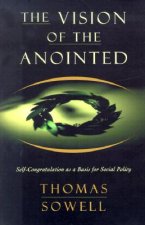
Vision of the Anointed
403 Kč -

Rise and Fall of the Great Powers
464 Kč -

Capital in the Twenty-First Century
986 Kč -

Last Hours of Ancient Sunlight: Revised and Updated Third Edition
366 Kč -

Weapons of Math Destruction
316 Kč -

Wealth, Poverty and Politics
825 Kč -

The Quest for Cosmic Justice
347 Kč -
![What Has the Government Done to Our Money? [Reprint of First Edition] What Has the Government Done to Our Money? [Reprint of First Edition]](https://media.libris.to/jacket/08800577t.jpg)
What Has the Government Done to Our Money? [Reprint of First Edition]
172 Kč -

Soul at Work
401 Kč -

Kissinger
471 Kč -

New Tsar
276 Kč -

Countdown
817 Kč -

Blowback
395 Kč -

What's Wrong with Protectionism
862 Kč -

Regulating Cannabis
236 Kč -

Accessory to War
674 Kč -
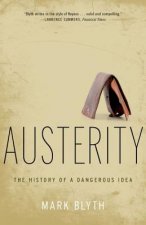
Austerity
379 Kč -

Five Stages of Collapse
494 Kč -

How Much is Enough?
303 Kč -
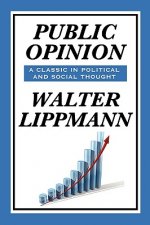
Public Opinion by Walter Lippmann
354 Kč -

Radical Markets
891 Kč -

Creating Public Value
1313 Kč -

Chasing the Scream
365 Kč -

Breaking the Vicious Circle
1113 Kč -

Cortical Visual Impairment - Approach to Assessment
2173 Kč -

Preserving Biodiversity
260 Kč -

In Defense of Degrowth
642 Kč -

Columbine High School Massacre
797 Kč -

Oxford Handbook of the Welfare State
1056 Kč -

Barack Obama Speeches
486 Kč -

Confessions of a Greenpeace Dropout
1053 Kč -

Production of Money
303 Kč -

American Age
1702 Kč -

American Power And The New Mandarins
671 Kč -

Obama and the Middle East
479 Kč -

Millipedes and Moon Tigers
850 Kč -

Is Democracy Failing?
394 Kč -

Understanding E-Government in Europe
1942 Kč -

Foreign Policy Begins at Home
571 Kč -

Monetary Nationalism and International Stability
360 Kč -

Fairness versus Welfare
1744 Kč -

Map and the Territory 2.0
357 Kč -

Watchdog Still Barks
800 Kč -
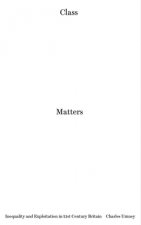
Class Matters
701 Kč -

Environmental Policy
1680 Kč -

Stop! Armed Police!
838 Kč -
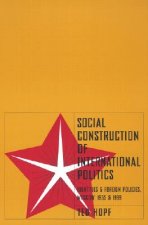
Social Construction of International Politics
1167 Kč -

Understanding Power: The Indispensable Chomsky
717 Kč
Osobní odběr Praha, Brno a 12903 dalších
Copyright ©2008-24 nejlevnejsi-knihy.cz Všechna práva vyhrazenaSoukromíCookies










 Vrácení do měsíce
Vrácení do měsíce 571 999 099 (8-15.30h)
571 999 099 (8-15.30h)